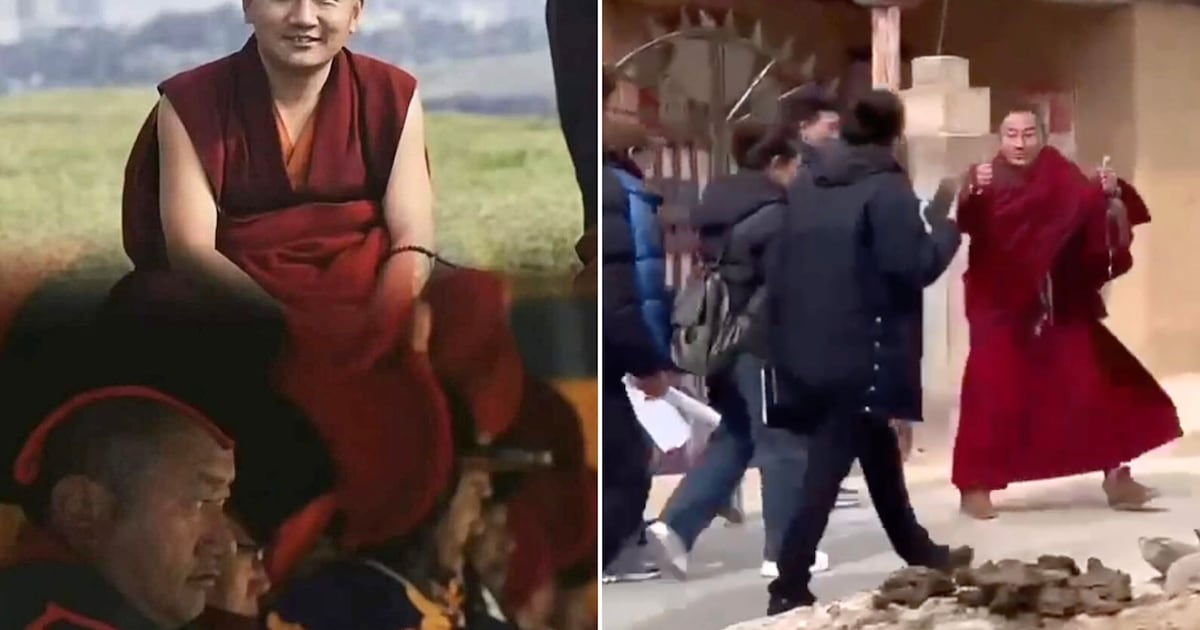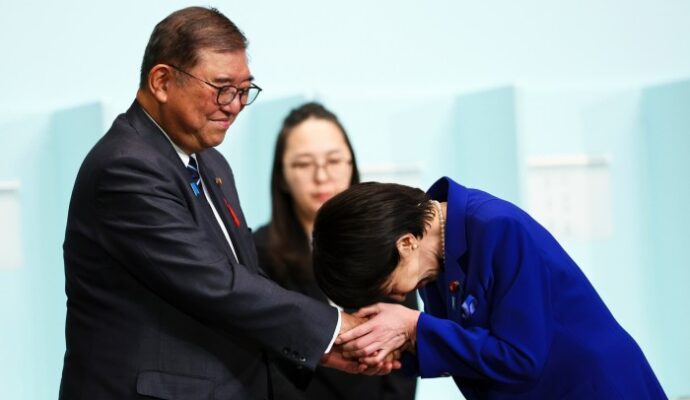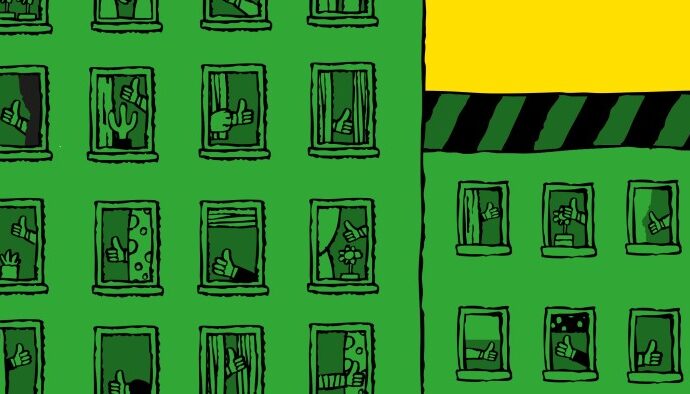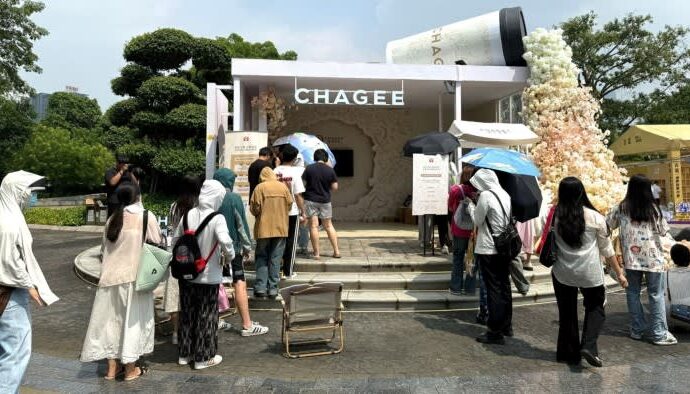
Authorities have sentenced two senior Tibetan monastic leaders to three- and four-year prison terms for their roles in rare 2024 public protests against a planned Chinese hydropower dam project, two sources in the region told Radio Free Asia.
Sherab, the abbot of Yena Monastery in Dege county’s Wangbuding township in Kardze Tibet Autonomous Prefecture, Sichuan province, was sentenced to four years in prison and Gonpo, the chief administrator, sentenced to three years, said the sources, who requested anonymity for fear of reprisals. It wasn’t immediately clear when the sentences were handed down.
The sources said Gonpo was in critical condition due to torture in detention and has been transferred to an intensive care unit in Chengdu’s West China Hospital.
The two heads of Yena Monastery were detained with hundreds of Tibetan monks and local residents in February 2024 for peacefully appealing for a halt to the construction of the 1,100-megawatt Gangtuo dam on the Drichu river (or Jinsha, in Chinese) that would submerge several monasteries of historical significance, including Yena and Wonto monasteries, and force the resettlement of communities in at least two major villages.
Many of the protestors who were detained were reportedly severely beaten during interrogations with some requiring medical attention, sources told RFA at the time. Most were released by the following month but key monastic and village leaders whom authorities suspected of playing a leading role in the protests – like Wonto Monastery’s senior administrator Tenzin Sangpo and village official Tenzin – were transferred to a larger county detention center.
Yena Monastery has faced particularly severe repression. Authorities have targeted monks for “focused rectification and re-education” of their political ideologies and for their role as “serious informants,” sources told RFA.
“The government really went all-out against Yena Monastery, as if venting their anger,” the first source told RFA. Officials said the two monastery leaders should be “severely punished” specifically for their decision to seek and hire legal representation.
In 2024, video emerged of Yena Monastery’s abbot Sherab holding both his thumbs up in the traditional Tibetan gesture of begging, as he, other Tibetan monks and local residents publicly cried and pleaded before visiting officials on Feb. 20 not to proceed with the planned project.
Collective imprisonment
The area on either side of the Drichu river remains under strict surveillance more than a year after the protests, with movement restrictions imposed on the monks and residents of the monasteries and villages at Wangbuding township, sources told RFA.
Authorities have established multiple checkpoints at the border between Tibetan areas in Sichuan and the Tibet Autonomous Region, strictly controlling all entry and exit, they said.
Only Tibetans holding transit permits issued by the police are allowed passage through the checkpoints installed on roads leading to monasteries like Yena and Wonto that are located near the river, sources said. Even ethnic Han Chinese with transit permits are prohibited from entering, they added.
“The whole area has been effectively sealed off, with nearly 4,000 residents and monks in the villages and monasteries near the river in a state of collective imprisonment, having lost all freedom of movement,” said the second source.
During periods considered politically sensitive by Chinese authorities – such as around the anniversary of the March 10 Tibetan Uprising Day of 1959 or the birthday of the Tibetan spiritual leader, the Dalai Lama, on July 6 – surveillance is even more heightened, sources said.
During “sensitive periods,” Tibetans without local household registration are refused entry, while local villagers traveling from rural areas to Dege county seat must apply for transit permits, and are often still refused, sources said.
The Gangtuo Dam – which is planned to be located at Kamtok (Gangtuo, in Chinese) in Dege county – is part of a Chinese government project to build a massive 13-tier hydropower complex on the Drichu, with a total planned capacity of 13,920 megawatts.
Chinese officials had indicated after last year’s protests that the project would proceed as planned but sources said there’s no clarity yet on when the construction would be started or if it would at all.
“Even if the project ultimately does not move ahead, the monks and residents of the surrounding villages have already been deeply harmed,” said the first source.
Written by Tenzin Pema. Edited by Mat Pennington.


